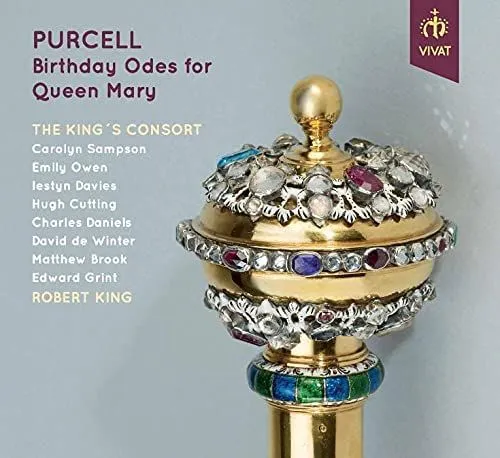
Purcell Birthday Odes for Queen Mary Carolyn Sampson, Emily Owen (soprano), Iestyn Davies, Hugh Cutting (countertenor), Charles Daniels, David de Winter (tenor), Matthew Brook, Edward Grint (bass-baritone); The King’s Consort/Robert King Vivat VIVAT 122 77:10 mins
Thirty years ago Robert King recorded all of Purcell’s odes and welcome songs in eight volumes on Hyperion. This is the second disc of his new recording of them on the Vivat label. The first disc contained two of the six Birthday Odes for Queen Mary (‘Now Does the Glorious Day’, and ‘Welcome Glorious Morn’) and so, following the three here, there is just one left for a later disc.
‘Arise My Muse’ (1690) is performed from a new, clearer edition which still allows accomplished singers like Charles Daniels and Iestyn Davies to fashion the melodic lines brilliantly with individuality and style. The text of this ode seems to include every cliché known to God (and probably Queen Mary), though there is one startling dialogue, dramatically sung by David de Winter and Matthew Brook, which wishes King William a safe return from the Battle of the Boyne and includes unchristian references to the other side. ‘Love’s Goddess’ (1692) is of a gentler mood, allowing the music space to include some ingenious instrumental accompaniments (‘Many Such Days’), and even sneak in a folk song (in: ‘May Her Blest Example’) performed here with robust and ironic enthusiasm.
In the last ode, ‘Celebrate this Festival’ (1695), there are some fine things such as ‘While for a Righteous Cause’, projected splendidly as a duet between tenor (David de Winter) and trumpet (Neil Brough). However, the delivery of the final three or four items seems a little characterless as though simply a very professional rehearsal.
Anthony Pryer